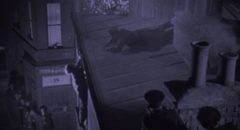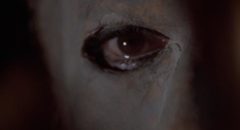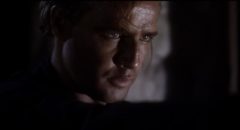
The BFI Blu-ray release of Arthur Robison’s The Informer (1929) offers a fascinating glimpse of the sometimes rocky transition from silent cinema to sound, with restorations of the original silent version and the partial Talkie made simultaneously.

His Girl Friday (1940) and Only Angels Have Wings (1939), two of Howard Hawks’ most critically acclaimed movies, have received excellent treatment from Criterion on Blu-ray, along with a restored transfer of Lewis Milestone’s pre-code adaptation of Ben Hecht and Charles MacArthur’s play The Front Page (1931), the source of Hawks’ cynical 1940 romantic comedy.

Hammer Films are, of course, best known for launching the modern era of horror with their late ’50s colour reworkings of the Universal classics from the ’30s, beginning with Curse of Frankenstein (1957) and Dracula (1958). These movies, colourful, somewhat perverse for the time, and more graphic than earlier films in the genre, inspired Roger […]

Criterion’s Blu-ray release of One-Eyed Jacks is one of the disk highlights of the year, its restored image and sound confirming this great western’s stature. Marlon Brando’s sole directing effort is a key transitional moment between the traditional western and the national myth it represented and the modern deconstruction of that myth by filmmakers like Sam Peckinpah and Arthur Penn.